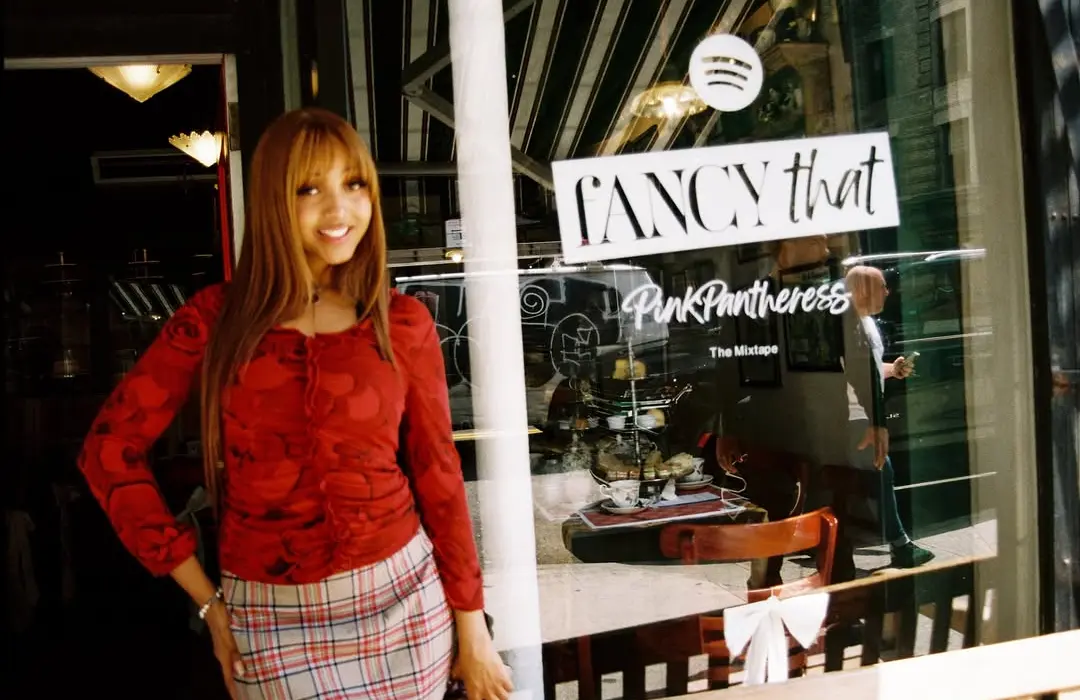“Feels like I’m getting overlooked” - PinkPantheress claims people are reluctant to listen to electronic music created by Black women
-
 The “Boy’s a liar” singer PinkPantheress opens up about the quiet bias Black women face in the electronic scene.
The “Boy’s a liar” singer PinkPantheress opens up about the quiet bias Black women face in the electronic scene.Brit-born creator PinkPantheress isn’t just another rising name in the pop-electronic world, she’s also speaking up about how it feels to push against an invisible barrier. She recently shared candidly that despite hitting all the high notes, she sometimes feels like she’s being overlooked. It's not that her songs aren't catchy, but she senses that people are hesitant when it comes to electronic music made by Black women.
The feeling of being overlooked, she hints, isn't about lack of craft; it's about expectations and biases in the music world.
The “Boy’s a liar” singer PinkPantheress opens up about the quiet bias Black women face in the electronic scene
In a recent interview with The Hollywood Reporter, PinkPantheress unpacked the frustration head-on. She said,
“People are less willing to listen to electronic music that is made by a Black woman. That’s just fact.”
She described that despite ticking industry boxes—viral hits, awards, high-profile collaborations—it still sometimes feels like she’s swimming upstream in terms of full recognition. As she puts it: she hits milestones, but it still feels like she’s
“getting overlooked … because a lot of people don’t necessarily understand what I represent, nor do they want to take a look.”
Born Victoria Walker and raised in Kent, England, PinkPantheress fused her love for UK garage, drum and bass and R&B into a unique alt-pop sound. Her breakthrough mixtape To Hell with It appeared in 2021, followed by her debut album Heaven Knows (2023), and Fancy That earlier this year – each project earning critical respect and bona fide fan love. Despite being named Billboard Women in Music’s Producer of the Year in 2024 and landing on global festival lineups, she still questions why the full industry gaze sometimes drifts past her.
Her point isn't self-pity; it's a call-out: people often resist engaging with electronic music by Black women because they struggle to fit it into the neat genre boxes the industry prefers. It's not about her skills or her sound, it’s about assumptions. As she said, sometimes she just enjoys proving people wrong by doing her thing so well that they have to listen.
“Once you like it,” she quips, “you’ll realise: why didn’t I give her a chance in the first place?”
PinkPantheress isn’t the first Black woman to work in the electronic genre, but those who’ve done it have often stayed on the margins. She cited Kelela, whose club-influenced music opened doors and collaboration with PinkPantheress felt deeply significant. Notably, only very few Black women at high alt-electronic levels get visibility, and PinkPantheress wants to change that. She remembered seeing M.I.A. as one of the few successful Black women doing alternative electronic music, and wondered why more weren’t seeing that reflected in the scene.
Her awareness of this landscape is not theoretical. She’s been vocal about how popular culture often pushes Black women into R&B or soul categories, rarely granting space for experimentation in drum and bass, garage or electronica. In her own words, her trajectory was never meant to fit the “pop star mold.”
She embraced short, sample-based tracks built for TikTok virality and listeners’ fast attention spans, not radio playlists. Yet even with track lengths under three minutes, each one feels carefully crafted, and every beat carries her intention, which is proof, she argues, that good music can’t help but break through if given the chance.
By insisting on authenticity over genre conformity, PinkPantheress is essentially holding up a mirror to the music industry. She’s showing that success as a Black woman in electronic music isn’t an aberration, it’s long overdue.
TOPICS: Victoria "PinkPantheress" Walker